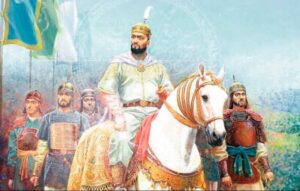SHARE WITH FRIENDS:
Management system in the state of Amir Temur
Plan:
-
Central authorities and administrative bodies of Amir Temur state.
-
Military-administrative system of the state.
-
Implementation of local administration.
-
Organization of judicial and police authorities.
